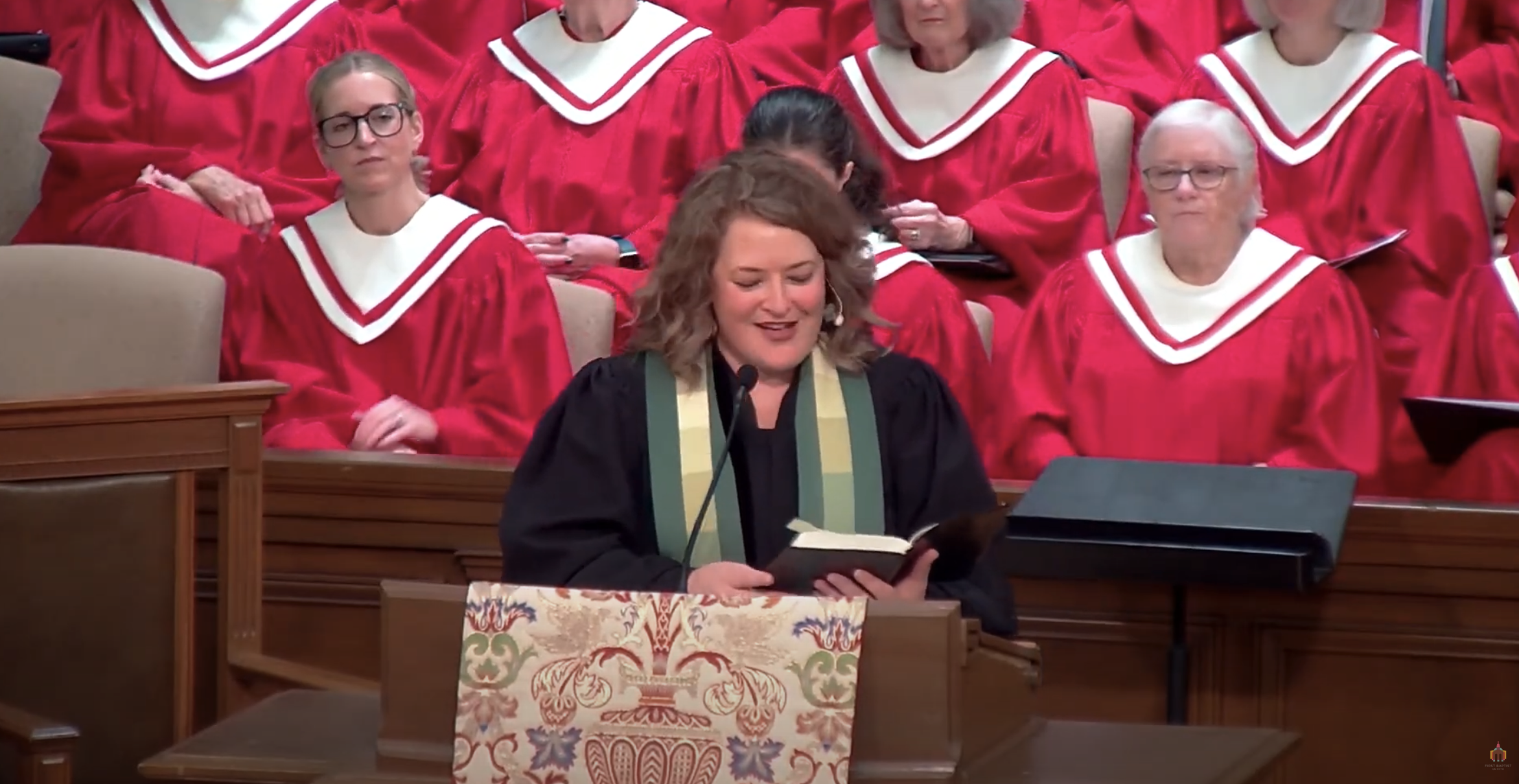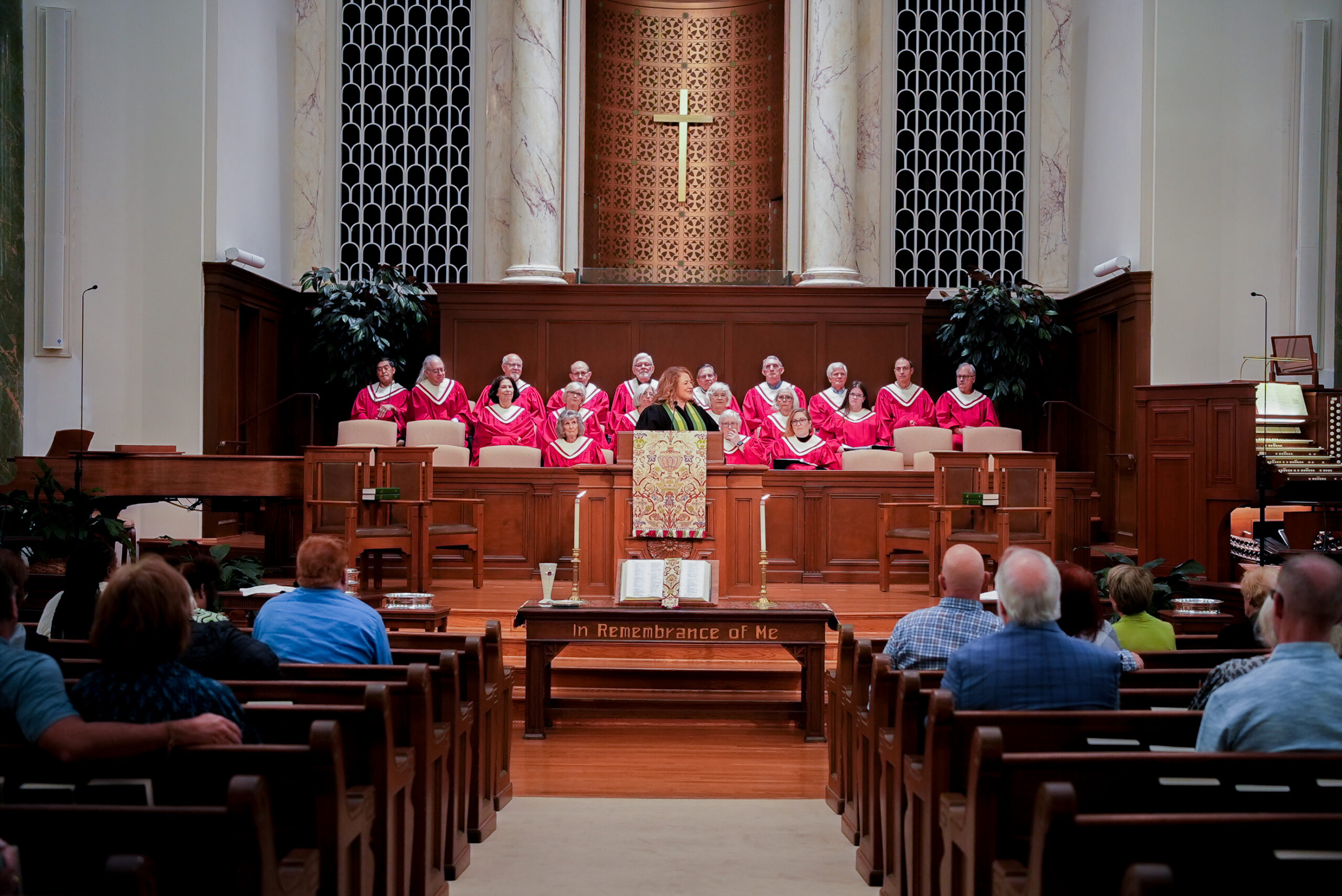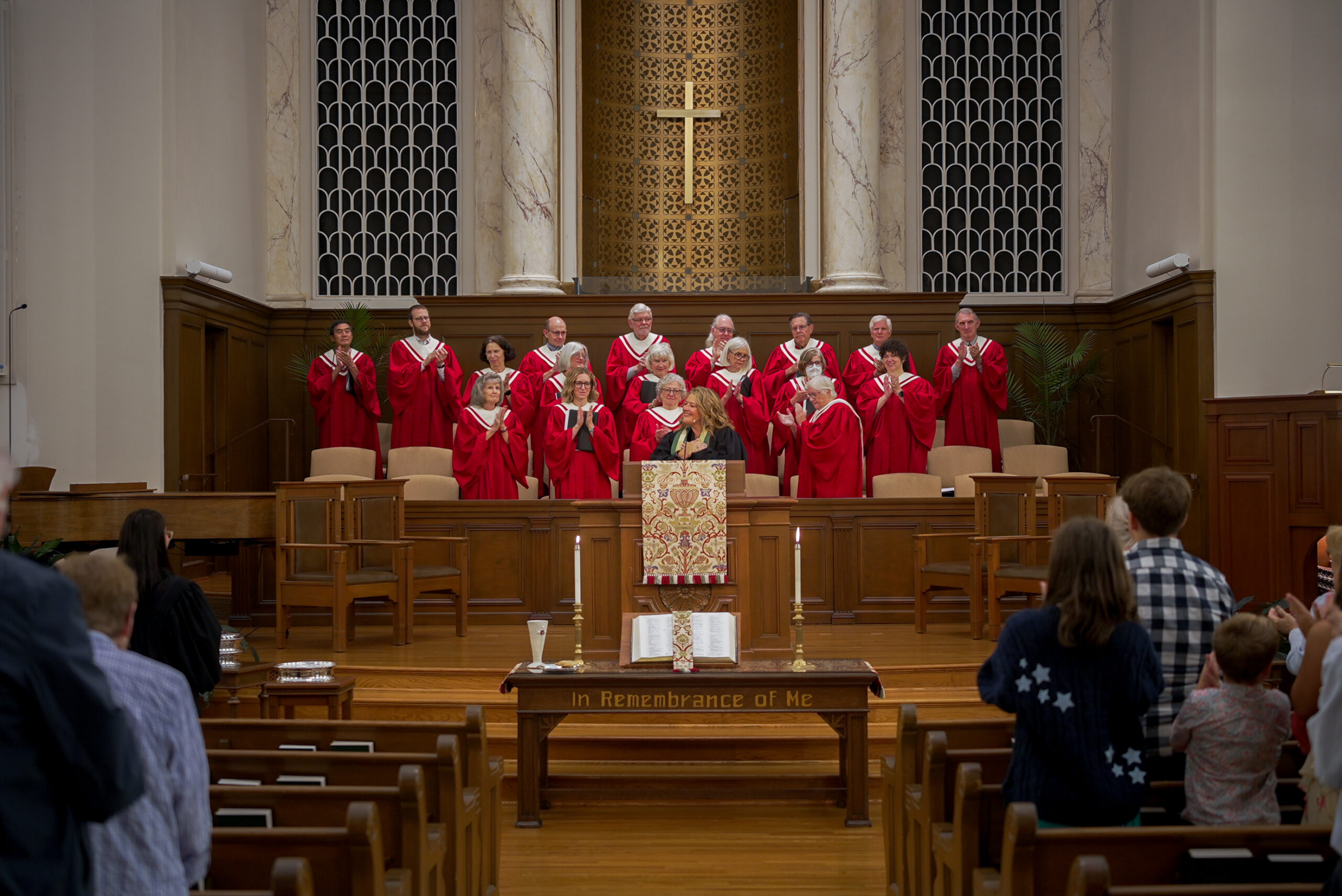IIn her clever short story called “Personal Testimony,” author Lynna Williams tells of the 12-year old preacher’s daughter who goes to a fundamentalist Bible summer camp for a few weeks. Her father is a hellfire and brimstone West Texas Southern Baptist, so from that we can imagine the shape of the camp where he sent her. The days look like many other summer camps: hiking and kickball, arts and crafts, even some archery and swimming in the lake.
But every single night, there’s a sweaty, revival-inspired, Holy Ghost-infused, sing-every-verse-of-Blessed-Assurance-until-someone walks-the-aisle old fashioned worship service. And all the campers know that at least one time during their camp experience, they’ll be expected to give their testimony. And they know it better be good.
The unmistakable reality, though, is that these campers are a bunch of church kids, not without challenge, of course, but kids with limited experiences so far in their young lives. Yet that sweet preacher’s daughter decides to step in to compose some testimonies – ones that would really get things going – as a sort of “ghost writer for Jesus” to make a little extra cash at camp. For five dollars, she wrote a story for Michael about how he once used to take the Lord’s name in vain at Friday night football games, and now his mouth is as pure as a crystal spring. Her best work was for Tim, who remembered how his life was meaningless and listless until late at night in their family’s pickup truck headed straight for a crash, Jesus took the wheel and steered that truck away from disaster. (She charged $25 for that one.)1
Lynna Williams tapped into that truth that sometimes we Christians can’t help ourselves when it comes to stories of our lives, and feel the peer pressure to ascribe God’s meaning and purpose in it all, lest we somehow seem… I don’t know… less faithful, less tapped into the divine movement of things, less willing to “let go and let God,” as they say. But with humor and a heavy dose of rapturous tales of repentance, Williams prompts a real examination that the Michaels and Tims of the world haven’t yet found, inviting her readers to ask: how does God work in my life? Who and whose am I? What is the meaning of my life?In the end, what matters most?
II These are the questions, aren’t they? They’ve most certainly formed the grounding of our summer spent in Genesis – from creation through human action and devastation, through family systems and violence and heartbreak, from generation to generation, then and now. We conclude our summer with a final look at Joseph and his brothers.
But unless you took matters into your own hands and read from where we left off in Genesis 37 through where we pick up in Genesis 45 (which I encourage you to do! And keep going! There’s good stuff in here!), let me catch us up to what has happened since we last saw Joseph. Joseph the dreamer had been sold by his brothers into slavery in Egypt, and there, he’s spotted and plucked from a line of Ishmaelites by Potiphar, an officer of Pharaoh. Potiphar could sense that the Lord was with Joseph, and so he put Joseph in charge. Not even an attempted seduction from Potiphar’s wife could sway him. Not even a stint in jail because he refrained from the attempted seduction from Potiphar’s wife could shake him. Joseph’s influence grew, and even in prison, he began to interpret the dreams of two fellow cellmates who worked in Pharaoh’s court. So when Pharaoh had dreams that his hired dream-interpreters couldn’t handle, one of those cellmates remembered Joseph and told Pharaoh about this strange man in jail who understood his dreams. Pharaoh sent for him, yet before Joseph began to interpret the dreams Pharaoh had had, he reminded Pharaoh: it isn’t I who interprets; it’s God.
God made clear to Joseph what Pharaoh’s dreams implied. In Egypt, there would be seven years of great plenty, Joseph told Pharaoh. Food will be everywhere, grain as numerous as the sands of the sea. And then there will be seven years of a famine so severe, that people all around the world would forget the flush years. Joseph suggested to Pharaoh that he should find overseers to collect one-fifth of all the food during the good years and store it all up in reserves for the lean years, and Pharaoh looked at Joseph with utmost trust and gratitude and said: you do it. So Joseph is given full authority on Pharaoh’s behalf: the ring, the chains, the garments he wears, the chariots he commands, the authority he carries all locating him at the right hand of power. He traveled the country to gather up food in every city, tucking away huge storehouses of bread for the lean season. So when the famine struck just as Joseph had dreamed and all the Egyptians cried to Pharaoh for bread, Joseph opened the storehouses and the Egyptians were fed.
By that point, news had gotten around to neighboring countries afflicted with the famine that there was bread in Egypt. News that, of course, reached the land of Canaan and the ears of Joseph’s brothers. Reluctantly, fearfully, nervously, ten of the eleven – Benjamin stayed home – set out for Egypt. They joined the throngs of people waiting to buy food from Joseph in Egypt, and when their time came, they stood in front of him to beg for bread. They had to be a pitiful sight, don’t you know – hungry, scared, unsure – yet immediately recognizable to Joseph, because of course. They didn’t recognize him, though, and after some stern back and forths with Joseph who demanded they leave one brother in Egypt and bring the other brother – Benjamin – back to Joseph, the brothers return home to Egypt, their bags full of grain and their money bags returned to their surprise. Despite Jacob’s protests, they return with Benjamin in tow to meet Joseph again reckoning with his anger from long past. Back and forth they go, until finally Joseph cannot take it anymore. Our text tells us he wept so loudly that all in Pharaoh’s house heard him, and from that tearful ecstasy, his confession spills out: “I am Joseph, is my father still alive?”
As we’ve seen throughout Genesis, especially since Isaac confused Jacob for Esau, the ability to recognize a person or object speaks to the recognizer’s spiritual insight or capacity to see. The brothers couldn’t respond to Joseph’s outburst, and so Joseph beckons them closer to tell them again. Martin Luther once noted that when Joseph introduced himself to his brothers, he didn’t use his Egyptian throne name but rather his family name.2 “I am your brother Joseph, whom you sold into Egypt.” From here, three times, he assures them of his place: “don’t be distressed, don’t be angry, he says, for God sent me here. It wasn’t you who did it, but God who sent me here, so that life could be preserved for our people.” To these twelve brothers who carried decades of pain and trauma and regret and anger, Joseph reframes the past with the purpose he finds from God.
III Irish poet Padraig O’Tuama writes that the three questions that haunt most people are: who am I?, What am I doing here?, and Where am I going?3 Who am I? What am I doing here? Where am I going? Does that ring true to you?
Think about the shape of your life. Consider its contours and challenges. Look at the times where you felt so settled and sure and steadfast. Remember when your relationships have been secure, and when your job clicked along as you expected. Remember when you didn’t lack for basic needs – money was stable, and a roof was over your head, and you felt safe and present in your days. Remember when your senses of place and belonging and agency have all tethered you so that you could rise.
Then look at the times when you have been so fully unmoored, when everything you’ve known and understood to be true has upended, and life as you know it to be has become a shadow, a distant memory of what it once was. Remember the loss that dismantled you and made your insides feel like a jumbled puzzle whose pieces will never fit together again. Remember the ending that dislocated you, where abandonment and shame and loneliness and despair wove into your spirit and refused to break loose. Remember the regret that leadened your heart, the trauma that closed off your hope, the suffering you thought would never abate. Remember the endless search for meaning, for purpose, for the optimized self – the optimized life – you envisioned and dreamed but seemed to stay just out of reach.
Who am I?, we wonder, setting off on a dizzying quest of identity that presses upon vocation and calling and belief and race and gender and sexuality and age and location and culture and friends and family and passions and values.
What am I doing here?, we wonder, considering how we are misaligned, off track, listless, unsure of the impact we hope to make and how we expect to get there, and longing to feel divided no more amidst the contradictions that shape us.4
Where am I going?, we wonder, questioning which path is ours and only ours to take, paying attention to the detours that have confused our direction, finding the north star of our life to guide us ahead.
Frederick Buechner understands this as “listening to your life.” Parker Palmer calls this “letting your life speak.” For today, I’m going to add a phrase of ‘finding God’s purposeful movement in your life.’
Finding God’s purposeful movement in your life doesn’t mean finding God’s puppeting of your life. God is not the big man upstairs, pulling all the strings and making things happen right and left. And finding God’s purposeful movement loosens the rigid search for God’s singular purpose for your life, as if there’s only one route with exacting twists and turns and no room for detours along the way. Ascribing meaning to God’s purposeful movement in your life doesn’t mean assigning God as the cause for everything that happens. God doesn’t cause bad things to happen to good people – or any people for that matter! – any more than God makes everything happen for a reason. You see, when God created humans with minds to use and decisions to choose, God limited themselves. No longer could everything be in God’s control, but everything remains in God’s love. Where God’s limits have boundaries, God’s love and God’s goodness know no boundaries. In God’s goodness, at work from beginning to end.
IV One of my greatest teachers throughout a summer spent in Genesis has been the incomparable biblical scholar, Walter Brueggemann, whose stunning commentary on Genesis has guided me every step through. Here, he discusses the inherent tension in the story of Joseph and his brothers. Its two dimensions, he says, are very real. On the one hand, there is real human jeopardy. Real betrayal. Real grief. Real famine. Real weeping. And on the other hand, there is real divine faithfulness. Real rescue. Real blessing. Real healing. Real food. As he makes meaning of this tension, Brueggemann explains that each reality depends on the other. Should you elevate one at the expense of the other, you’ll blow the whole equation. Neither fully tells the truth all by itself.5
With this in mind, we might differ in how we understand Joseph’s interpretation of God’s purposeful movement in his life. But I hope we can learn that in all things, Joseph listened to his life. He let his life speak. He stood in the real tension of human failings and God’s great faithfulness, and found the purposeful movement of God in it.
Friends, as you listen to your life, as you let your life speak, as you stand in the real tension of human failings and God’s great faithfulness, as you wonder who you are and what you are doing and where you’re going, as you make meaning of this life, strain your ears to hear God’s beckoning through it all. Attune your body and your heart toward the movement of God in your life. Remember that this quest for purpose and meaning is incomplete without God at work in and through it. Remind yourself that God’s presence is with you always, and that, as Paul will later write to the church at Rome, “in all things, God works for the good of those who love him, who have been called according to his purpose.”
Padraig O’Tuama tells a story of a palliative care doctor, Ira Byock, who has observed over the course of his long career that people who are dying tend to say four things: Please forgive me, I forgive you, Thank you, I love you. O’Tuama observes the counterpoint of these four statements at life’s end in light of the three questions asked along the way. He says this: “we move from questions about our own ontology as meaning-making, story-seeking individuals – who am I? Where am I going? What am I doing here? – to statements or requests that are entirely predicated upon responsibility and reciprocality. The move from one to another demonstrates a substantial change in the question of ‘who am I to be?’ … to statements that recognise the truth of how we hurt and heal each other, of how very much we can mean to each other.”6
V And as the Joseph’s story winds toward its conclusion, we hear that in Jacob’s final days, he offers blessings to his 12 sons, blessing that will carry them forward into the new tribes they’ll shepherd and steward. But the fearful 11 were sure that Joseph’s new kindness toward them would end, sure that Jacob’s death nullified whatever truce had emerged between them. And let me read for us what happens next. READ GENESIS 50:15-21. This remarkable story of forgiveness and reconciliation is where the story finds its conclusion. Joseph says to his brothers, yes, you did this thing, but I can bear it.7 Please forgive me, I forgive you, thank you, I love you. Even though you intended it for harm, God intended it for good.
VI The story is told of the foreman on a building site who asks one of the builders what he is doing. The builder replies, “I’m breaking rocks.” Another worker is asked the same question, and he answers, “I’m earning for my family. The question is posed to a third worker. With a glint in his eye, he responds, “I’m building a cathedral.”8





